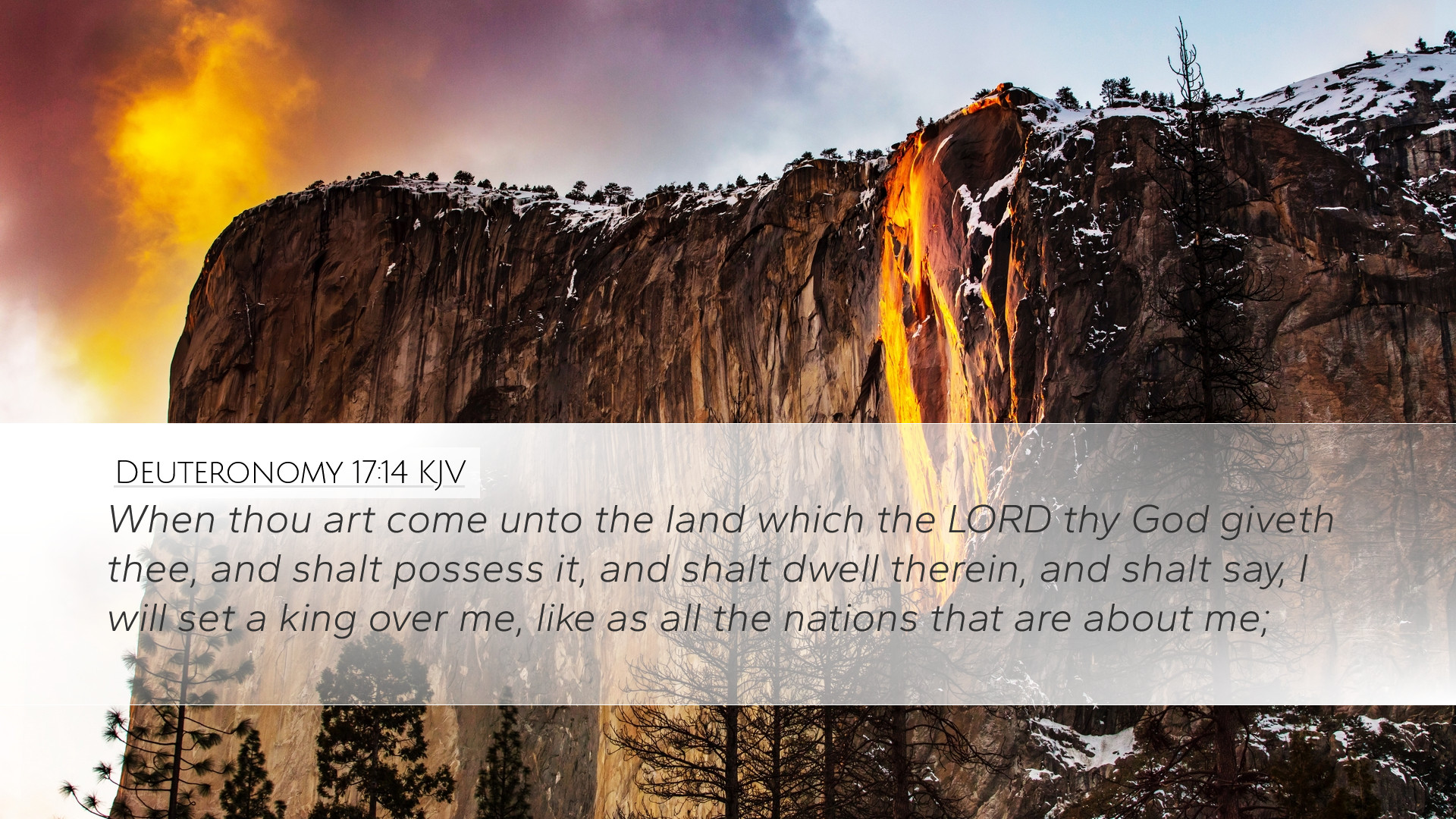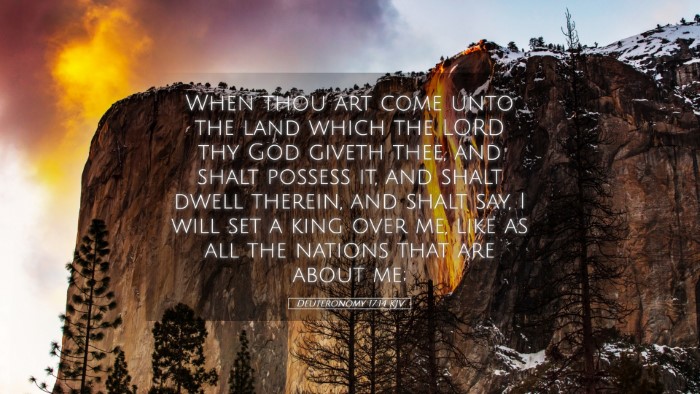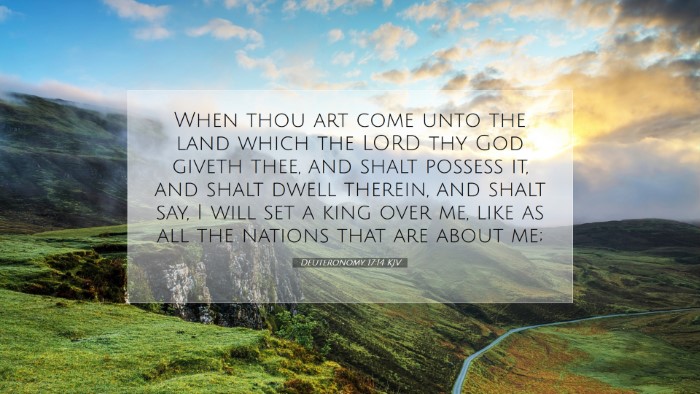Deuteronomy 17:14 - Commentary Summary
Verse: "When thou art come unto the land which the Lord thy God giveth thee, and shalt possess it, and shalt dwell therein, and shalt say, I will set a king over me, like as all the nations that are about me."
Introduction
This verse marks a significant transition in Israel's governance as they are instructed on the future establishment of a monarchy. The Israelites, on the verge of entering the Promised Land, contemplate having a king, similar to the surrounding nations. This verse opens a discourse on leadership, divine sovereignty, and the responsibilities that accompany authority.
Context and Setting
Deuteronomy serves as a reaffirmation of the covenant between God and Israel. As the Israelites prepare to inhabit Canaan, Moses articulates the requirements for their society, including guidelines on leadership. This passage is pivotal as it not only anticipates the future need for a king but also provides divine instruction on how such a leader should operate under God's law.
Exegesis of the Verse
This verse can be dissected into several key components:
- Divine Provision: The phrase "the land which the Lord thy God giveth thee" emphasizes that the land is a gift from God, which establishes the foundation for any future kingship. The legitimacy of kingship is rooted in divine appointment rather than human ambition.
- Possession and Dwelling: The act of possessing and dwelling indicates stability and a new identity for Israel as a nation. It is crucial to note that leadership should arise from a secure and prosperous community.
- The Desire for a King: The people's intention to have a king "like as all the nations" illustrates a potential desire for conformity to worldly standards. This raises questions about the motivations behind their request for monarchy versus their unique identity as God’s chosen people.
Insights from Public Domain Commentaries
Matthew Henry's Commentary
Matthew Henry reflects on the significance of this request, noting the tension between divine guidance and human desire for earthly kingship. He highlights that while God is the ultimate king, a human king could be appointed, provided that he remains under divine authority. Henry emphasizes the dangers of this request: the Israelites might be seeking security and leadership in a manner that reflects the nations around them, potentially compromising their covenant relationship with God.
Albert Barnes' Notes on the Bible
Albert Barnes elaborates on the historical implications of the Israelites' desire for a king. He asserts that this request symbolizes a lack of faith in God's governance. Barnes argues that this notion of kingship is fraught with socio-political challenges, as it includes the risk of oppression and the need for accountability to God's law. Barnes insists that any king appointed must be one who recognizes his duty to uphold the Torah and lead in accordance with God’s will.
Adam Clarke's Commentary
Adam Clarke contextualizes this verse within the broader narrative of Israel's history. He suggests that the desire for a king represents both a legitimate need for leadership in a new land and a grave misunderstanding of God's intended governance. Clarke points out that the Israelites' longing for a king may stem from their struggles with faith, implying a desire for visible rather than spiritual leadership. He reminds readers that God’s original design was for a theocratic society, which contradicts the desire for monarchical rule.
Theological Implications
This verse opens up several theological inquiries:
- The Nature of Leadership: Are human authorities to be seen merely as representatives of God’s will? How can leaders reconcile authority with humility and service?
- Faith vs. Fear: Does the desire for earthly security reveal a deeper lack of trust in God's sovereignty? How do modern believers respond to these same fears?
- Covenant Relationship: How does understanding the covenant impact the way believers interpret leadership and authority today? The necessity of aligning with God’s directives remains relevant.
Practical Applications
For pastors, students, and theologians, this passage invites reflection on our own congregational leadership structures:
- Evaluating Leadership Qualities: Assess how your church selects leaders. Are they chosen based on character and adherence to Scripture?
- Encouraging Faith over Fear: How can churches foster an environment where trust in God's provision supersedes reliance on human authority?
- Understanding Authority: There is a call for leaders to remain accountable to God’s standards. How can this be practically implemented within the church governance model?
Conclusion
Deuteronomy 17:14 serves as a pivotal moment for understanding the relationship between the divine and human governance. It highlights the Israelites’ desire for a king, which prompts a deeper examination of the nature of authority, the importance of aligning with God’s will, and the implications for contemporary church leadership. These insights are crucial for anyone involved in ministry or theological study to navigate the complexities of faith, governance, and community identity in the light of Scripture.


